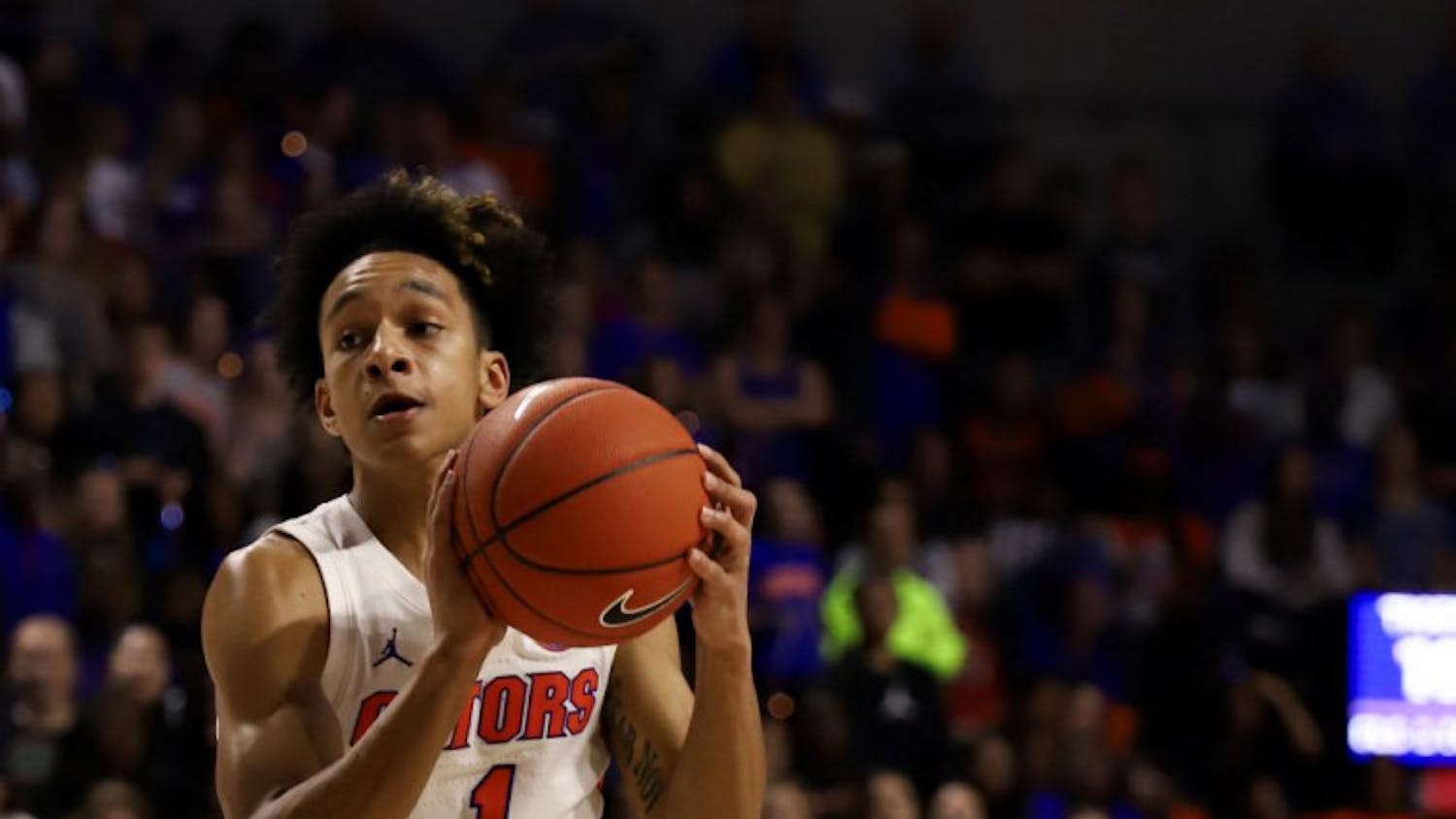
Captain and co-founder of Gatorloop Taylor Waber, left, and another member of the engineering club start to make the mold for the pod that will be put on a track this summer for SpaceX’s Hyperloop competition.
Members of Gatorloop share more than just a team name.
The 55-member group is mostly comprised of engineering undergraduates with fond memories of tearing things apart and seeing how they tick.
For many, Lego served as an early building block in their pursuit to become engineers. Now, the team will compete against 28 other teams in Hawthorne, California, this summer.
Neither the competition date nor the prize have been announced.
“If a toy broke or something when I was growing up, I didn’t cry and get it replaced,” said Taylor Waber, a 23-year-old UF aerospace engineering graduate student and the team’s captain. “I would unscrew it and figure out what was broken and fix it myself.”
Elon Musk, the co-founder of PayPal and Tesla Motors, will host the competition with his company SpaceX.
SpaceX unveiled the conceptual Hyperloop, a high-speed ground transport system, in 2013, according to its website.
The Hyperloop uses pods in an airless tube to transport both people and goods from one place to another in a fraction of the time that it currently takes.
Following Elon Musk’s announcement of the competition, Waber posted on Facebook engineering groups in hopes of forming a Hyperloop team. UF students Ben Duncan, 21, and Sebastian Quesada, 25, had already started their own groups; the trio merged in Summer 2015.
Matison Whillans, a 21-year-old UF mechanical engineering senior, is the team’s system integration lead.
The team, she said, believes in the concept’s importance.
“I think it would really revolutionize how we do business, how things are shipped, how basically the entire economy works,” Whillans said.
A large, torpedo-like object sits in the middle of UF’s Energy Research and Education Park, located less than a mile from Oxford Manor Apartments.
The team will one day launch its pod at 250 miles-per-hour down a 1-mile track at the competition.
As of press time, Gatorloop’s GoFundMe has raised about $5,000, which will fund the project and its recent breakthroughs.
Grace Everitt, Gatorloop’s marketing, public relations and sponsorship lead, said the Herbert Wertheim College of Engineering also awarded the team with a $35,000 grant.
Jaime Caicedo, a 27-year-old UF electrical engineering doctoral student and the team’s electrical systems lead, said winning would not be the only prize.
“We put so much work into this,” he said. “Whatever happens, if that thing runs and doesn’t burn or crash, it’s going to be great.”





